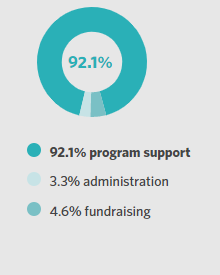On a remote island in the Philippines, called Alabat, resides a multi-purpose cooperative offering groceries to a community only accessible to the outside world by a boat service that runs twice a day. Created by Unbound sponsored families in the Manila program, this cooperative creatively solved a challenge faced by an already struggling community.
But, as well-known writer Maya Angelou has said, the thing about creativity is that “the more you use it, the more you have,” a statement of truth whether you are of a wealthy family or of one living on the margins of poverty.
When faced with the island community’s second major challenge, cooperative members united again to act.
Electricity service to the island was provided by a utility company located on another island. A high level of delinquent payments had begun to threaten the viability of providing electric services to the island, and that’s when the members of Alabat St. Vincent Multipurpose Cooperative (ASVMC) got involved.
They negotiated with the electric utility to outsource bill collection to the cooperative. ASVMC paid the full electric bill of the community at a discounted rate and collected individual payments.
This solution ensured continued electric service for the island and created an income stream for the cooperative members until the time that the utility itself could establish a local office.
Though Unbound does not directly own or operate any of the cooperatives created by parent groups in its program, the empowerment felt by members who’ve grown to believe that they can collectively resolve their own challenges is characteristic of Unbound.
Built On Unity, Part 2
Unbound communities in the Philippines thrive after taking collective action to establish cooperatives.
May 25, 2022 | Be Informed
BUILDING SOLIDARITY, EMPOWERING THROUGH COLLECTIVE ACTION
Anti-poverty organizations, such as Unbound, should play the role of strengthening local human networks of support, not replacing them. A core characteristic of the Unbound program model is economic self-sufficiency, where families and staff shape the program so that, over time, families rely less on Unbound benefits and more on their own income-generation activities to meet their basic needs.
Throughout the countries in which it works, Unbound’s establishment of small, community-based support groups for parents of sponsored children naturally provides a practical structure from which ideation and implementation of community cooperatives can take flight.
Support groups bring together parents, in particular mothers, with common experiences, instilling a sense of empowerment while providing a safe space of encouragement. Though support groups have evolved differently depending on the country of origin, Unbound has similar, but location-relevant strategies in place to help guide sponsored members and families toward achieving more long-term goals that pertain to their future. For example, many families have access to microloans as part of livelihood projects or pilot entrepreneurship programs. Currently, more than 35,000 families have started a small business or livelihood, and more than $400,000 has been disbursed by Unbound for entrepreneurship programs.
Though Unbound’s direct cash transfer methodology of delivering aid to sponsored members is effective at meeting the needs of individual families, it’s not as well-suited to dealing with community-level challenges, which is where cooperatives come in.
A financial organization owned and controlled by its members, a credit cooperative allows members to borrow at low interest rates from an amount of money they have saved as a group. Currently, there are more than 155 cooperatives led by Unbound parent group members in operation throughout eight countries served by the organization, most of which are credit cooperatives.
According to Dan Pearson, Unbound’s director of international programs, cooperatives are one way that sponsored families can come together to solve collective problems, as cooperatives have a proud history of building solidarity and empowering through collective action — values that are consistent with Unbound program characteristics.
“Unbound’s sponsorship program continues to evolve toward a greater emphasis on community organizing as a complement to the direct cash transfer methodology,” Pearson said.
Unbound facilitates the creation of cooperatives by bringing sponsored families together to reflect on their needs and develop solutions to the collective challenges they face. Unbound refers to these cooperatives as “born organizations,” or rather, organizations independent of Unbound and its projects that were started with some assistance from Unbound or a project.
Another type of community organizing — or collective action — strategy employed by Unbound is that of its Agents of Change initiatives, where community challenges are addressed and resolved by community members at the local level in a relatively short period of time with some financial assistance from Unbound.
“Cooperatives, on the other hand, are much more complex to create and sustain, but provide a more durable legal and organizational structure for long-term collective action,” Pearson said.
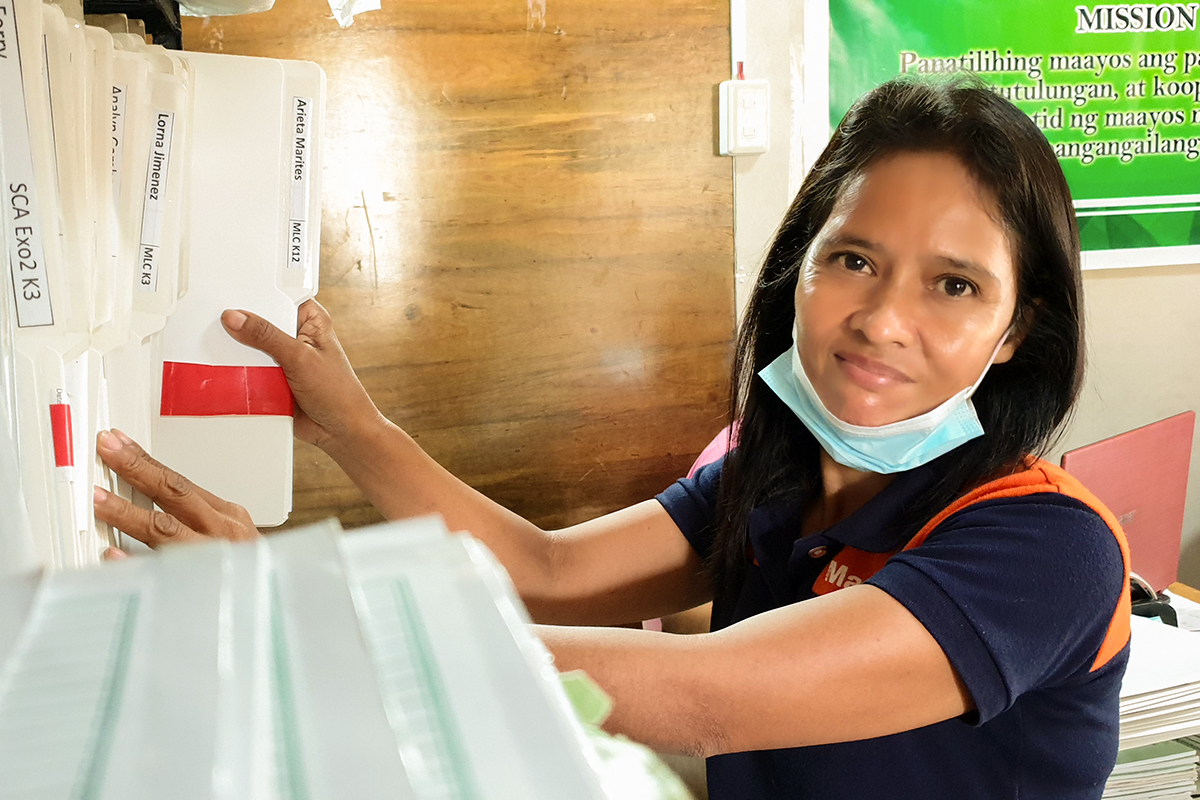
Agatona, mother of sponsored child Felma, exemplifies the role a cooperative can play in creating opportunities for economic self-sufficiency at the individual level. A single mother of eight in Unbound’s Antipolo program in the Philippines, Agatona was a fish vendor for 20 years before her mothers group formed the Masinop Credit Cooperative, where she became the bookkeeper, a paid position within the cooperative. Her children’s educations taken care of, she works during the day and attends school at night to fulfill her dream of becoming a certified public accountant so she can “make our cooperative more successful.”
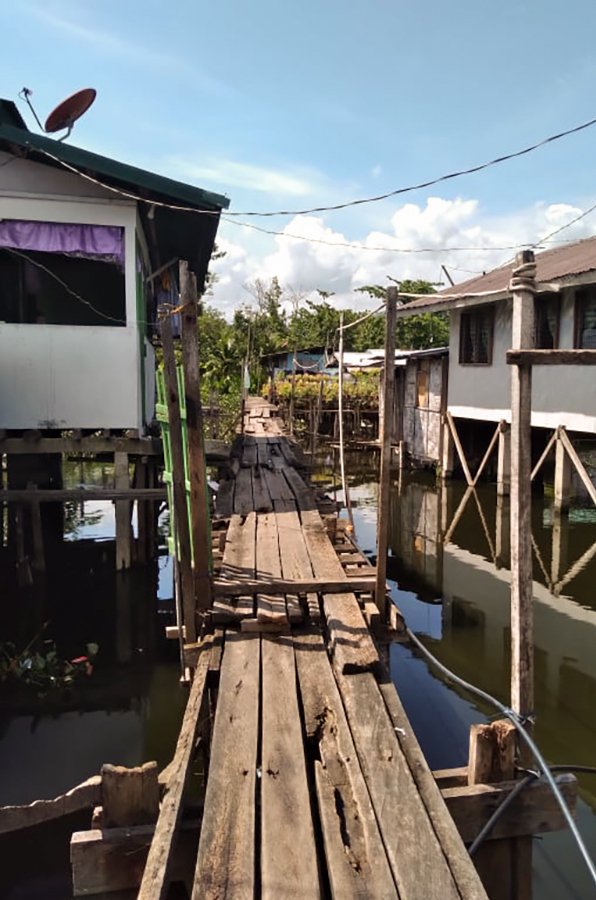
This more stable 41-meter wooden footbridge in Unbound’s Zamboanga program in the Philippines is the perfect example of another type of collective action strategy created by Unbound, known as Agents of Change. In an area prone to flooding during the rainy season, the community’s parent leader group enacted an Agents of Change initiative that funded the construction of this safer bridge, which provides the primary walkway for many residents to reach the main road from their homes.
THE LONG-TERM DIFFERENCE A COOPERATIVE MAKES
Cooperatives can play a crucial role in improving a country’s overall economic growth and the lives of their members, especially those of marginalized sectors in a society. More than 15 different types of cooperatives in the Philippines exist, providing either support by specific service (financial, health care, transportation, education, etc.) or support by member type (laborers, fishermen, farmers, etc.).
In Asia Pacific, the Philippines is considered a cooperative leader, with cooperatives having played an important role there since the early 20th century. In 2019, the International Cooperative Research Group (RG) of the U.S. Overseas Cooperative Development Council conducted a study entitled, “What Difference Do Cooperatives Make.” The results of this study determined that cooperatives in the Philippines were making a significant economic difference in the lives of the majority of members and were also contributing to their overall well-being.
The Cooperative Development Authority of the Philippines reported in 2017 that 13% of the total population of the country holds membership in cooperatives, with the most prevalent form of cooperatives being multi-purpose cooperatives.
The RG study uncovered several key findings about how cooperatives make a difference in the Philippines. Cooperative members reported better economic positions, or higher incomes, than the general population overall. Cooperatives in the Philippines showed signs of gender inclusivity, with women participating at higher levels, suggesting cooperatives play a key role in women’s economic empowerment.
In addition, cooperative members showed greater resilience, with 86% turning to their cooperative either directly or through savings to support them in times of emergency. Finally, members and non-members alike said they perceived that the existence of cooperatives positively influences the overall quality of life in a community.
“Overall, cooperatives offer an excellent vehicle to support the provision of economic opportunity in a valued and empowering way supportive of inclusive growth,” the study concluded.
This sentiment is echoed by Unbound Philippines staff who say that the cooperatives make the economy come alive in the community. Out of Unbound’s five Philippine programs, including Quezon, there are 17 cooperatives founded by parent groups and in various stages of establishment. The longest running has been in existence for more than a decade, with the largest type being multi-purpose cooperatives.
The success of a cooperative depends on the original purpose for which it was created. A successful Filipino cooperative can be seen in the SBFCA Pambuhay Multipurpose Cooperative in Agoo, Philippines. With the Philippines as the eighth largest rice producer in the world, sponsored families in Unbound Quezon program came together to form the multipurpose cooperative around a rice mill. The cooperative provided better pricing for local rice producers and consumers, eventually stabilizing the market for a key income source and dietary staple.
In another part of the Quezon program, the Yapak CC mothers group led by Francisca had two visions for their community cooperative. Their first vision was that the credit cooperative would be so successful in their community that they could eventually evolve it into a multi-purpose cooperative that also sells groceries and products made by sponsored families.
Their second vision was more far reaching, but the basis of all their motivation and diligence: “This is not only for the benefit of one, this is for all,” said Francisca, chairwoman of Yapak CC.
“I think this is one of the ways we can alleviate our lives from poverty.”
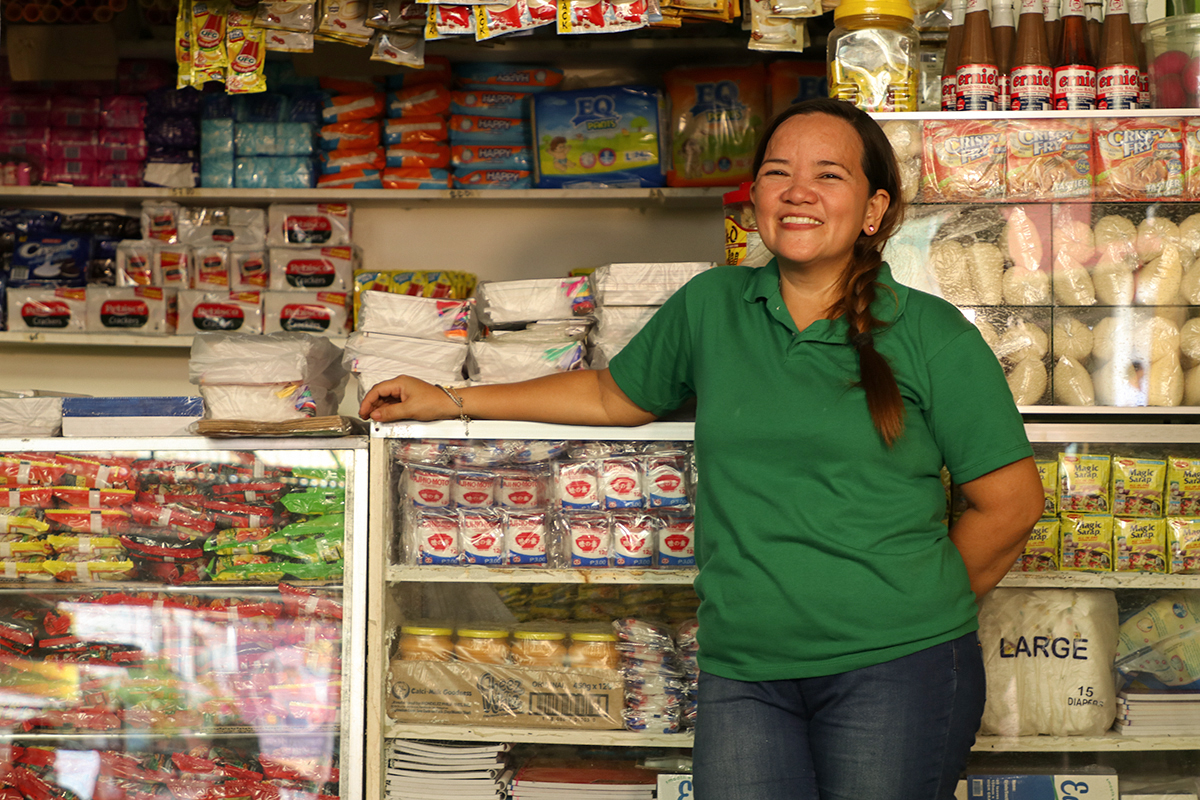
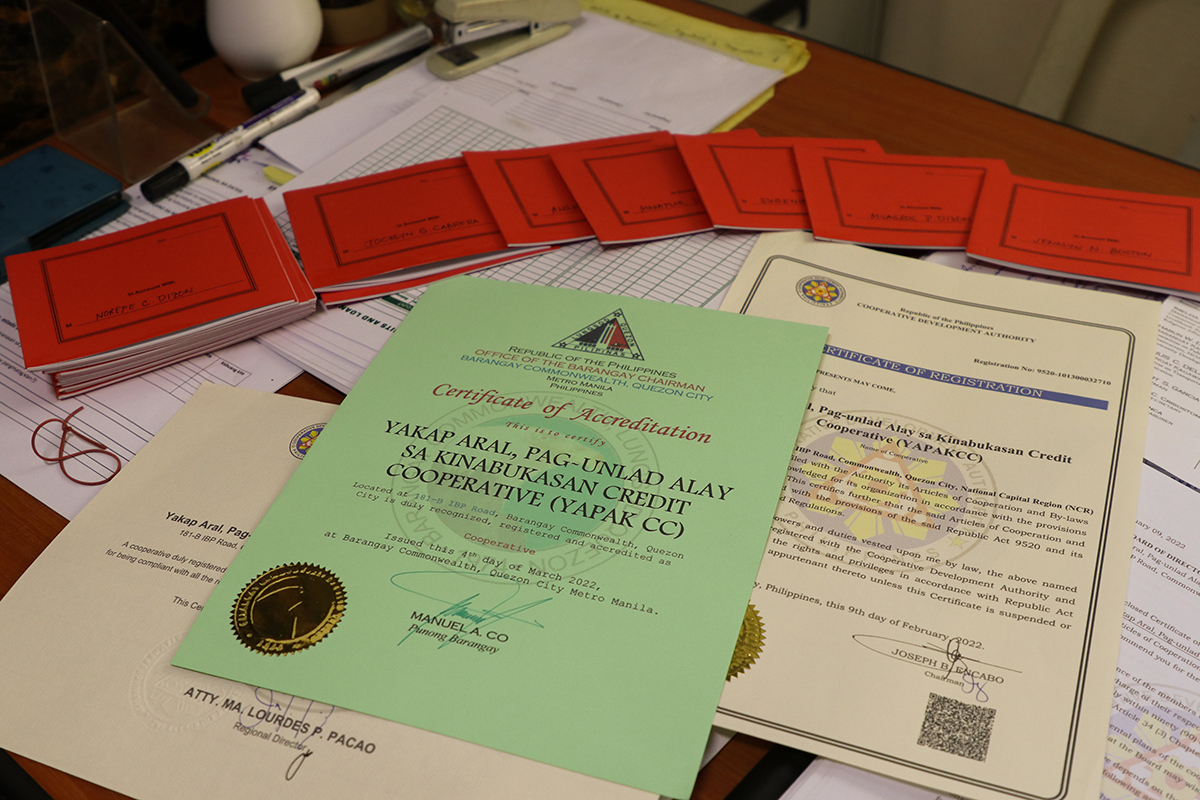
Photo 1: Laura, one of the founding members of a consumer co-op in Unbound Quezon program and her mothers group leader, stands at the storefront. The co-op, started by a group of 15 mothers, is now 240 members strong. They sell products at a discounted rate, including food to sponsored elders and school supplies to Unbound scholars.
Photo 2: Documentation that took the Quezon Program’s Yapak CC leaders almost four years to complete with the local government, marking the official registration of their business. The cooperative will offer membership to only Unbound sponsored families to start, with dreams of growing to a multi-purpose cooperative and eventually alleviating poverty in their community.
Cooperatives are complex to create and sustain but provide a more durable legal and organizational structure for long-term collective action.
— Dan Pearson, Unbound Director of international Programs
Read part 1 of the Built on Unity series: “Filipino mothers group unites under strong leadership for their journey to establish an impoverished community’s first cooperative.










